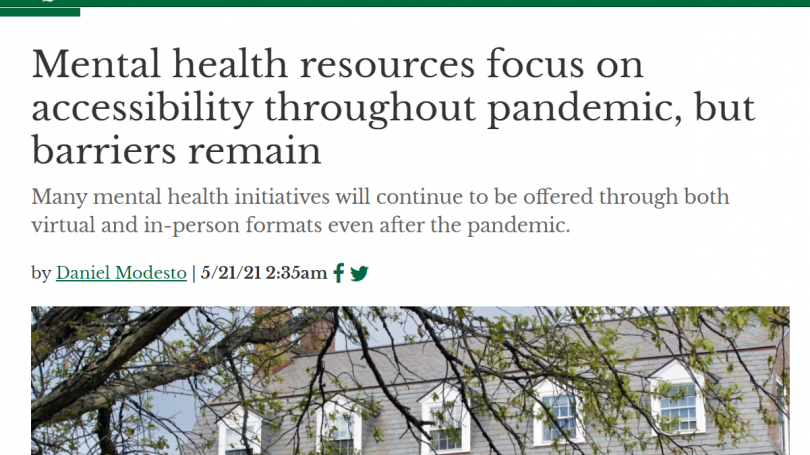
- About
- Wellbeing
- Prevention & Education
- Get Involved
- News & Events
Back to Top Nav
Back to Top Nav
Back to Top Nav
Back to Top Nav
Back to Top Nav
Many mental health initiatives will continue to be offered through both virtual and in-person formats even after the pandemic.
As the instability of drastic change that spring 2020 brought has shifted to pandemic-related fatigue, students continue to grapple with mental health concerns. While students and administration alike have emphasized the importance of maintaining well-being throughout the pandemic and mental health resources have adapted alongside the College's shift to remote operations, some students continue to face barriers to accessing these services. Despite a growing awareness to recognize mental health on campus, the challenges of adequately addressing mental health are certainly not new.
This article is featured in the 2021 Spring special issue.
As the instability of drastic change that spring 2020 brought has shifted to pandemic-related fatigue, students continue to grapple with mental health concerns. While students and administration alike have emphasized the importance of maintaining well-being throughout the pandemic and mental health resources have adapted alongside the College's shift to remote operations, some students continue to face barriers to accessing these services. Despite a growing awareness to recognize mental health on campus, the challenges of adequately addressing mental health are certainly not new.
Over the past few years, the College has invested more money in its mental health resources. In 2018, the College allocated $17 million in mental health resources, citing a national increase in student demand. In addition, the College has expanded the Counseling Center by hiring four more counselors within the past year. Despite this allocation of funds, some students have continued to face roadblocks in accessing these resources.
The pandemic has, for some students, only further exacerbated the difficulty of accessing mental health resources. Last fall, students expressed concern that the College's COVID-19 social restrictions negatively affected their mental health, and during the winter outbreak, students in isolation and quarantine faced even more strain on their mental well-being. Read more at The Dartmouth